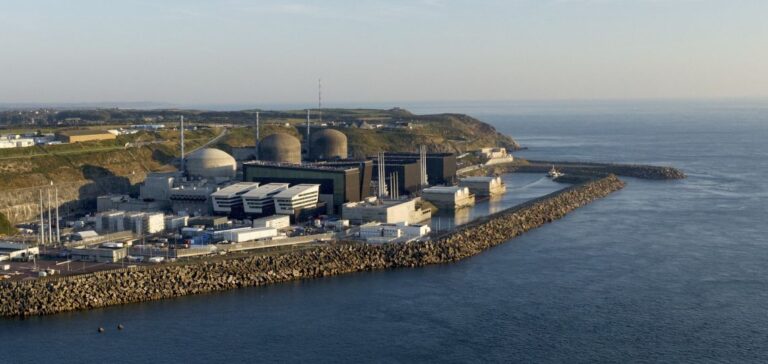The restart of the European Pressurised Reactor (EPR) at Flamanville, located in the Manche department, has been delayed for the fourth time by Électricité de France (EDF). The unit, offline since 15 February, was due to resume electricity production on 17 April. The new target date has been set for 21 April, following the completion of additional maintenance works.
A power ramp-up hindered by technical setbacks
According to EDF, the Flamanville 3 teams are currently undertaking reactor restart operations under conditions deemed safe, aiming for grid connection within the updated timeframe. The initial shutdown was prompted by a series of technical interventions, subsequently extended to carry out further work on several critical systems.
The company specified that the interventions involved the seawater cooling system, adjustments to the turbo-alternator group—particularly concerning three mechanical bearings—and maintenance on equipment required for the reactor’s gradual power increase. EDF noted that all affected components are located within the nuclear section of the installation.
Target of full output by summer 2025 remains unchanged
The Flamanville 3 reactor, a third-generation unit, was connected to the national grid in December 2024, twelve years later than originally planned. Since commissioning, it has undergone two scheduled shutdowns, followed by the current suspension due to unanticipated technical issues. EDF had previously stated that the ramp-up of the reactor—France’s 57th nuclear unit—would involve up to ten planned maintenance stops, with potential for unscheduled interventions.
Despite the latest delay, EDF maintains its target timeline for full power output, aiming to reach 100% of nominal capacity by summer 2025, in line with its initial roadmap.





















